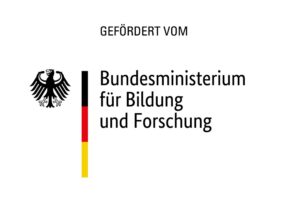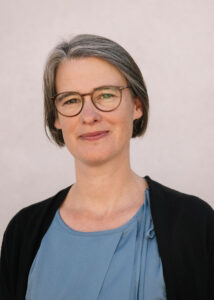Human Rights and Human Rights Politics
Our Research Focus
Against the background of current socio-political and international developments, human rights research at the institute deals, on the one hand, with theoretical questions of the justification, interpretation and continuing significance of human rights; on the other hand, it empirically examines the human rights situation and human rights politics at local, national and international level. We cover the entire spectrum of human rights and human rights actors in our research and place particular emphasis on the freedom of religion and belief, academic freedom, and political and social human rights. Our research is embedded in an interdisciplinary human rights focus at FAU, coordinated by the Center for Human Rights Erlangen-Nuremberg (CHREN).
Current Projects
Principle Investigator: Prof. Dr. Katrin Kinzelbach
Researcher: Zuzana Jurasova
Duration: September 2024 – April 2025
Funding: ZEIT Foundation
Project Description:
As part of an action-oriented research lab, students at FAU Erlangen-Nuremberg will work together with the Scholars-at-Risk Network (SAR) in the winter term 2024/2025. SAR is an international network founded at New York University that works to protect persecuted scholars. Participants in this research workshop deal with the documentation of human rights violations in the higher education sector, research individual cases and write country reports that will be submitted to the United Nations Human Rights Council in cooperation with SAR.
Principal Investigator: Prof. Dr. Dr. h.c. Heiner Bielefeldt
Period: 2020 – today
Project Description:
According to the Universal Declaration of Human Rights of December 1948, human rights are “the foundation … of peace in the world”. In the face of a fundamental crisis of rules-based multilateralism in general, Heiner Bielefeldt sets out to analyze the peace-building potential of human rights, to explore practical options of various agents in this field and develop fragments of a realistic perspective of hope. The monograph on this topic will presumably appear in 2024.
Principal Investigator: Prof. Dr. Dr. h.c. Heiner Bielefeldt
Period: 2009 – today
Project Description:
The right to freedom of religion or belief (FoRB) has always been politically contested. On the one hand, we witness numerous violations ranging from structural discrimination or targeted indoctrination of children to mass detentions and atrocities of genocidal dimensions. On the other hand, we have seen political attempts to turn and twist FoRB into a bastion of anti-liberalism and anti-genderism, thereby even obfuscating its status as a human right. The normative contours of FoRB and its relationship to other human rights, especially in the area of gender justice, thus warrant careful analysis and clarification. Over many years, Heiner Bielefeldt has been committed to strengthening FoRB as an indispensable component of a holistic human rights approach. Between 2010 and 2016, he served as the UN Special Rapporter on FoRB. His reports are available in all six official UN languages. Together with Nazila Ghanea (the current UN Special Rapporteur on FoRB) and Michael Wiener, Bielefeldt published a commentary for Oxford University Press (“Freedom of Religion or Belief. An International Law Commentary”, 2016), which will shortly appear in its second enlarged edition. His book “Religious Freedom Unter Scrutiny”, coauthored with Michael Wiener (Pennsylvanian University Press, 2020), is also available in German and Indonesian languages.
Principle Investigators: Prof. Dr. Katrin Kinzelbach; Prof. Dr. Staffan I. Lindberg (V-Dem Institute, University of Gothenburg)
Researcher: Dr. Lars Pelke and Dr. Angelo Panaro
Period: 01. September 2021 – 31. August 2026
Funding: Volkswagen Foundation
Website: https://academic-freedom-index.net
Project Description:
171 states have ratified the UN Covenant on Economic, Social and Cultural Rights, which obligates states parties to respect the freedom of scientific research. The Academic Freedom Index is a word-wide effort to assess the de facto compliance with this legally binding commitment.
The project involves close cooperation between the Institute of Political Science at FAU Erlangen-Nürnberg and the V-Dem Institute at the University of Gothenburg. It relies on a sophisticated methodology, which is informed by item response theory, and provides comprehensive expert-coded data on the realisation of academic freedom worldwide. Annual updates will open up a wide range of possible applications in science promotion, management and policy. These data also provide the basis for two postdoctoral projects on the causes as well as the consequences of declining/increasing academic freedom levels.
Principle Investigator: Prof. Dr. Michael Krennerich
Period: 2023 – 2024
Project Description:
Social human rights have gained considerable importance in recent years. Our research asks how social human rights are codified, interpreted and enforced in the interaction between civil societies, states and the international community. This includes both a discussion of criticism towards social human rights and an analysis of problems and resistance to their implementation. The research activities build on the standard work by Michael Krennerich “Soziale Menschenrechte. Zwischen Recht und Politik” (2013, 526 p.) as well as academic contributions and lectures on the topic in recent years. In 2023, academic exchange with researchers in other European countries (Austria, Slovakia, etc.) will be intensified. A more advanced book on social human rights is going to be published in 2023/2024.
Principle Investigators: Prof. Dr. Katrin Kinzelbach; Prof. Dr. Georg Glasze und Prof. Dr. Blake Walker
Researchers: Lama Ranjous and Raphaela Edler
Period: 01. September 2022 – 31. August 2025
Funding: German Federal Ministry of Education and Research
Project Description:
The project “Geospatial data for the digital documentation of human rights violations” (GeoDatRights) aims to a) use satellite-based remote sensing and social media data to investigate the destruction and military appropriation of educational institutions in war zones, and b) to enhance, over the course of the project, human rights-related digital analysis skills in German academia. FAU has already established a distinctive human rights profile and wants to expand this in a future-oriented manner. Internationally, digital human rights investigations are playing an increasingly important role in research and teaching; in Germany, only a few non-governmental organisations address the topic so far, in particular the Syrian-led organisation Mnemonic, whose comprehensive digital archive will be made accessible for the project’s researchers. Attacks on educational institutions in Syria are the focus of our analysis. The intergovernmental Safe Schools Declaration contains a series of commitments to strengthen the protection of education from attack, and to limit the use of schools and universities for military purposes. Signatory states to the Safe Schools Declaration (including Germany in 2018) have agreed to a series of commitments that include the need to collect data about attacks on educational institutions. With this project, we explore the usability of geospatial data for this purpose, drawing on interdisciplinary cooperation involving political scientists focused on empirical human rights research and geographers who will contribute, in addition to their regional expert knowledge, methodological competence from digital geography.
Principle Investigator: Prof. Dr. Michael Krennerich
Editorial Board: Prof. Dr. Michael Krennerich, Prof. Dr. Christina Binder, Dr. Tessa Debus, Prof. Dr. Elisabeth Holzleithner, Prof. Dr. Arnd Pollmann, Dr. Janika Spannagel, Prof. Dr. Stefan Weyers
Period: 2007 – today
Funding: Wochenschau-Verlag; Seed-funding: German Foreign Office; single issues: BMZ/GIZ and „Wertvolle Zukunft. Stiftung für ethisches Handeln“
Website: www.zeitschriftfuermenschenrechte.de
Project Description:
Published since 2007, „Zeitschrift für Menschenrechte. Journal for Human Rights” (zfmr) is the leading interdisciplinary journal on human rights and human rights politics in the German-speaking world. It brings current human rights issues to analysis and reflection from the perspective of political science, history and law as well as philosophy, sociology and education. The editor-in-chief is Michael Krennerich, who, together with colleagues from Germany and Austria, is responsible for producing the journal. So far, around 220 authors from different regions of the world have contributed to the journal.
Editorial Board: Prof. Dr. Simone Derix, Prof. Dr. Jan Eckel, Prof. Dr. Andreas Frewer, Dr. Rainer Huhle, Prof. Dr. Katrin Kinzelbach, Dr. Daniel Stahl, Prof. Dr. Annette Weinke.
Period: 01. February 2020 – today
Funding: Fritz Thyssen Foundation
Website: www.geschichte-menschenrechte.de
Project Description:
The science portal www.geschichte-menschenrechte.de was launched in 2015 by the Working Group Human Rights in the 20th Century (University of Jena). FAU took over the coordination in June 2020. The website brings together biographical interviews and commentaries that historicize the development of human rights since the 20th century. The focus is on national and international actors, concepts and practices: In what way and with what motives have different groups and individuals acted as human rights norm-entrepreneurs? What practices have they established? How do different institutions such as the UN, the European Court of Human Rights or the International Criminal Court shape the history of human rights? On what normative grounds do supporters but also opponents of human rights operate?
Completed Projects
Principle Investigator: Prof. Dr. Katrin Kinzelbach
Researcher: Dr. Alexandra Kaiser
Period: 1. July 2021 – 31. December 2023
Funding: German Federal Ministry of Education and Research
Project Description:
The project explores the legal and institutional framework of the “freedom indispensable for scientific research” as well as the empirical reality of this freedom in China. To understand the current opportunities and limits in the Chinese research and innovation system, it is necessary to examine academic freedom in the era of Xi Jinping from a socio-legal perspective. Our project focuses the institutional autonomy of Chinese universities, and on the freedom of academic exchange, which are both subdimensions of academic freedom as enshrined under international law. Taking international law as the benchmark, we are particularly interested in evaluating developments since President Xi Jinping assumed office in 2013. We analyze relevant primary sources, including statutory provisions, policy guidelines, political documents as well as statutes of select universities. Furthermore, we examine the empirical reality of institutional autonomy by undertaking case studies. Together with the German Centre for Higher Education Research and Science Studies, we will undertake a pilot bibliometric study to measure the freedom of academic exchange in different disciplines. Last but not least, we will conduct interviews and a survey amongst scholars. The project aims to broaden our understanding regarding the opportunities and limits of scientific collaboration with Chinese partners.
Principle Investigator: Prof. Dr. Michael Krennerich
Period: 2022 – 2024
Funding: Friedrich Naumann Foundation for Translation and Publication in English
Project Description:
The aim of the research is to show how the complex reality of human rights politics can be described and studied more systematically using concepts of political science and related disciplines. A first result is the German monography written by Michael Krennerich, “Human Rights Politics. An Introduction” (2023), which will be edited and translated for the English-speaking world in 2023/2024.
Principle Investigator: Prof. Dr. Dr. h.c. Heiner Bielefeldt
Period: 2020-2023
Cooperation Partner: Jesuit Worldwide Learning – Higher Education at the Margins
Project Description:
Human rights obtain their specific normative contours and (limited) effectiveness through enshrinement in positive law. At the same time, they point beyond the sphere of positive legislation. The 1948 Universal Declaration of Human Rights, “mother document” of international human rights protection, professes respect of the “inherent dignity” of all human beings. Universal rights to freedom and equality back up this due respect. Although claiming an intrinsic persuasiveness, human rights have always been, and continue to be, a contested theme. In cooperation with “Jesuit Worldwide Learning. Higher Education at the Margins”, Heiner Bielefeldt developed a learning program, which specifically addresses people living in refugee camps or in similarly challenging situations. Bielefeldt’s book “Sources of Solidarity. A Short Introduction to the Foundations of Human Rights” was published in 2022 by FAU press. It is also available online (free of charge). A Portuguese version will be published shortly. Translations into other languages are in preparation. Didactical material will shortly be available.
Principle Investigators: Prof. Dr. Dr. h.c. Heiner Bielefeldt und Prof. Dr. Andreas Frewer
Period: 2014 – 2021
Funding: 2014 – 2017 Emerging Fields Initiative (EFI); 2018 – 2021 Josef & Luise Kraft Foundation
Website: https://www.grk.menschenrechte-und-ethik.med.fau.de
Project Description:
Many of the problems currently discussed in medical ethics, e.g. the treatment of persons with dementia or issues of advance healthcare planning, display obvious human rights dimensions. At the same time, the human right to health and other human rights provisions are certainly relevant for medical ethics. Within FAU’s Emerging Fields Initiative (EFI), Andreas Frewer and Heiner Bielefeldt organized a number of conferences exploring problems at the intersection of human rights and medical ethics. They also initiated a book series (“Human Rights in Healthcare”), which by now contains seven volumes. Between 2018 and 2021, Frewer and Bielefeldt co-chaired a graduate school, supported by the Munich-based Kraft Foundation, with a focus on “Human Rights and Medical Ethics for Older Persons”.
Principle Investigator: Prof. Dr. Michael Krennerich
Period: 2020 – 2022
Funding: Friedrich Ebert Foundation for Translation and Publication in English
Project Description:
Based on a worldwide analysis of constitutions, electoral laws, websites of electoral authorities and election observer reports, suffrage and electoral practice standards of free and fair elections were systematically presented and their conformity in electoral practice was problematized. The outcome was the book written by Michael Krennerich “Freie und faire Wahlen? Standards. Kurioses, Manipulationen” (2020), which has meanwhile been published in German in its second edition (2021) and has also been translated into English (“Free and Fair Elections? Standards, Curiosities, Manipulations,” 2021) and French (“Des élections libres et transparentes? Normes, curiosités, manipulations,” 2022).
Furthermore, Michael Krennerich conducted the study “Electoral Rights of Homeless People. Legal, Organizational and Political Conditions for the Application of Voting Rights by Homeless People” (2021) for the German Institute of Human Rights (Deutsches Institut für Menschenrechte) and contributed to the joint international study “The 2021 German Federal Election on Social Media. An Analysis of Systemic Electoral Risks Created by Twitter and Facebook Based on the Proposed EU Digital Services Act.” by the Sustainable Computing Lab/ Vienna University of Economics and Business (2021).
Principle Investigators: Prof. Dr. Petra Bendel; Prof. Dr. Michael Krennerich
Period: 2017 – 2019
Funding: German National Academic Foundation
Project Description:
The project “Refugees and Human Rights” was realized as a social science college of the German National Academic Foundation (Studienstiftung des Deutschen Volkes). The results were published in the book “Flucht und Menschenrechte” (2020), edited by Petra Bendel and Michael Krennerich.









